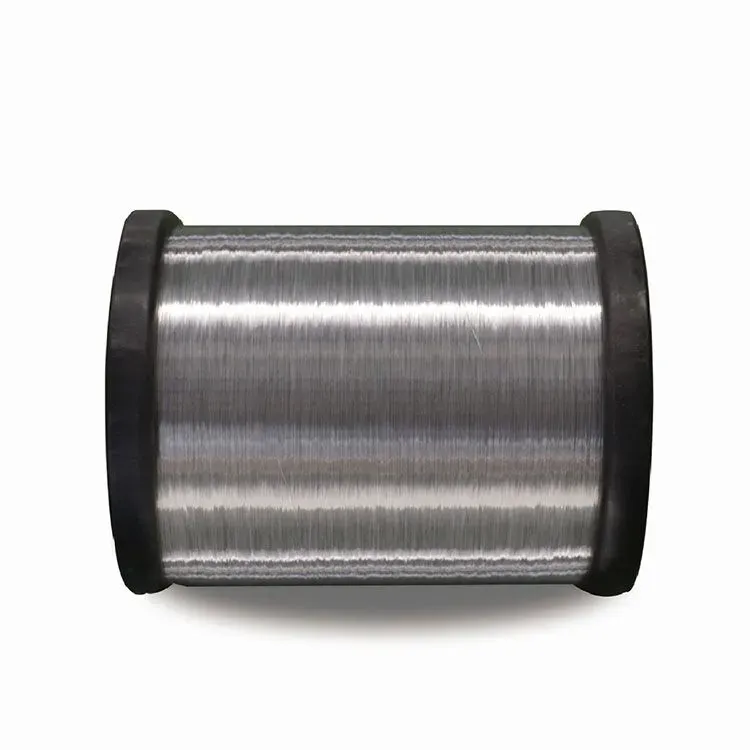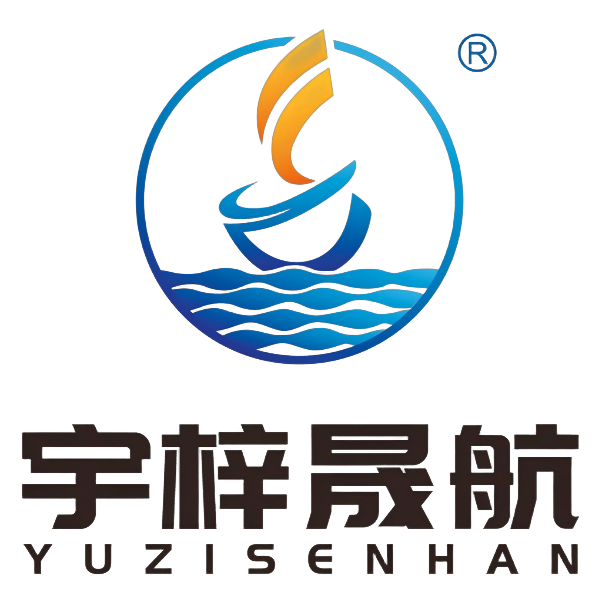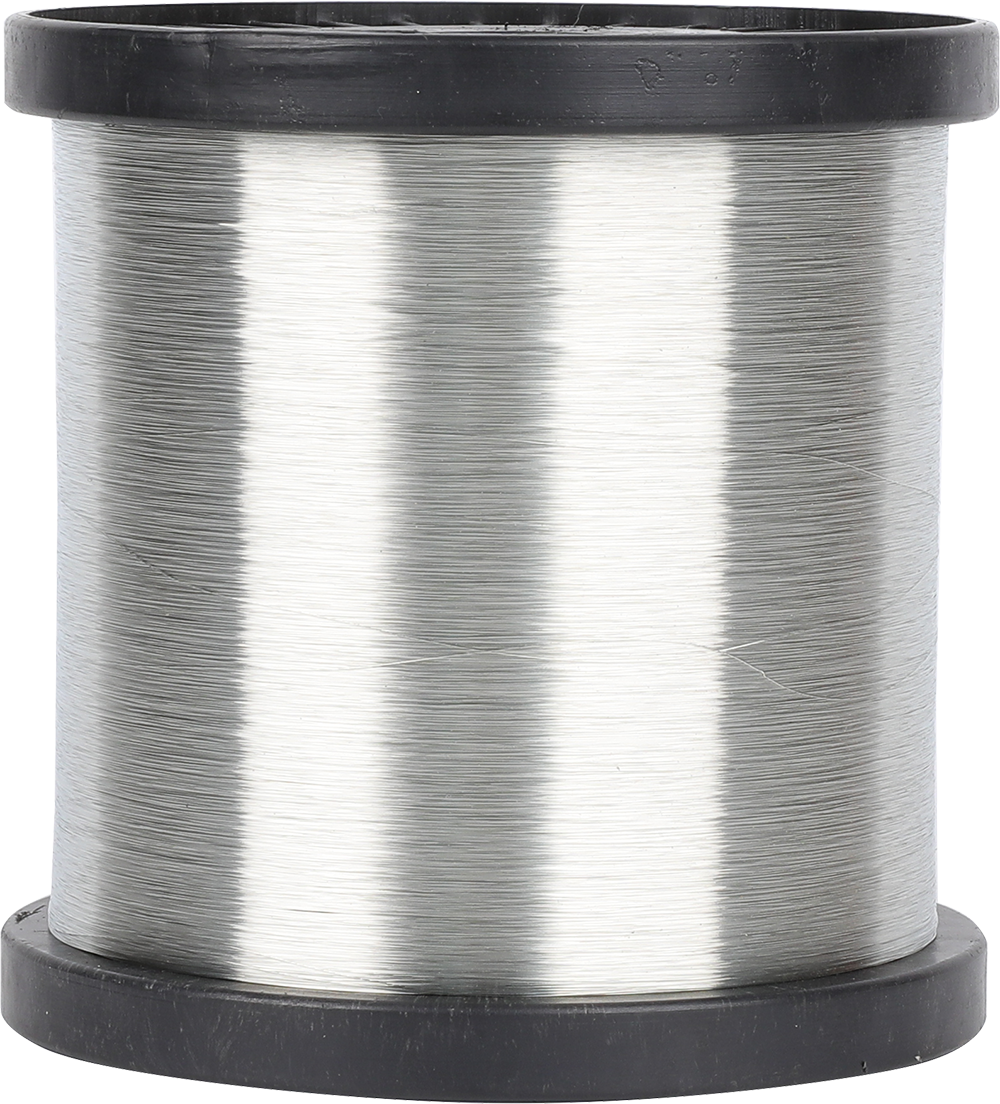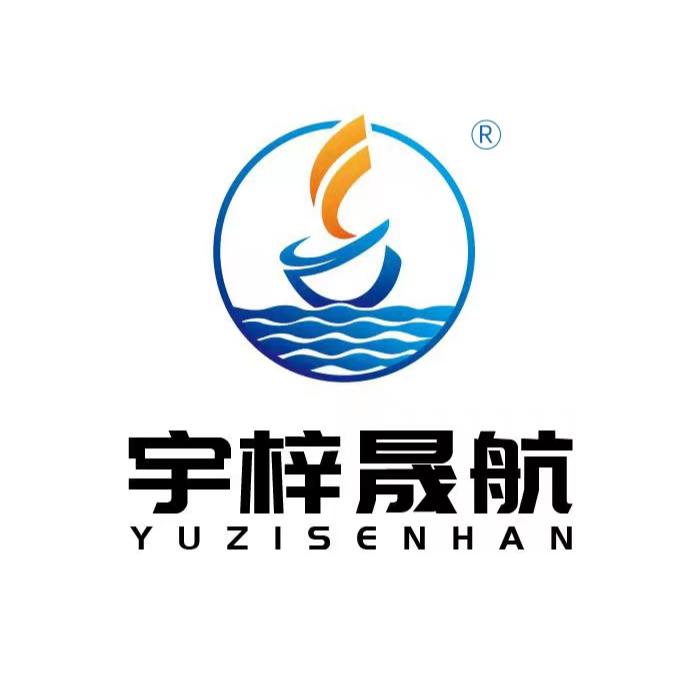ال اینڈ میگ وائیر کے کردار کو سمجھنا
المنیم وائیر کو ایک اعلی کارکردگی والے مادے کے طور پر وسیع پیمانے پر پہچانا جاتا ہے جس کو طے کرنے کے لیے تیار کیا گیا ہے کہ مشکل ماحول کا سامنا کرنا پڑتا ہے۔ الیومینیم کو میگنیشیم کے ساتھ جوڑنے سے ایک منفرد ملاوٹ بنتی ہے جو طاقت، لچک اور بہترین مزاحمت کی خصوصیات فراہم کرتی ہے۔ ان بہت سے صنعتی شعبوں میں جہاں ٹکاﺅ اور بھروسے داری ضروری ہوتی ہے، اس تار کا کردار اہم ہوتا ہے۔ بجلی، خودرو، فضائیہ، اور تعمیراتی صنعتوں میں اس کے استعمال کے دائرے میں وہ شعبے شامل ہیں جہاں گرمی، کمپن، اور نمی کے ماحول سے دوچار ہونا ناگزیر ہوتا ہے۔ ان چیلنجوں کا مقابلہ کرنے کی صلاحیت کی وجہ سے AlMg تار وہ مادہ ہے جس کا کمپنیاں انتخاب کرتی ہیں جو طویل مدتی کارکردگی اور کارآمدگی کو ترجیح دیتی ہیں۔
صنعتی درخواستوں میں مکینیکل طاقت
کھنچاؤ دباؤ کے خلاف مزاحمت
المنیم وائیر ناقابل یقین کشش قوت کی وجہ سے جانا جاتا ہے، جس کی بدولت یہ بھاری بوجھ کو برداشت کرنے کی صلاحیت رکھتا ہے بغیر ٹوٹے۔ یہ مکینیکل فائدہ صنعتوں کو سٹرکچرز، کیبل کی تقویت اور کنکٹرز کے لیے تار پر بھروسہ کرنے کی اجازت دیتا ہے۔ جب مشینری میں استعمال کیا جاتا ہے جو مسلسل تناؤ کے تحت کام کرتی ہے، تو تار لمبے عرصے تک اپنی شکل اور افعالیت برقرار رکھتا ہے۔
دوبارہ حرکت کے تحت لچک
ایل ایم جی تار کی لچک اس کا ایک اور فائدہ ہے، جو کمپن یا دہرائی جانے والی حرکت والے صنعتی حالات میں خاص طور پر اہمیت رکھتی ہے۔ بعض سخت مواد کے برعکس جو وقتاً فوقتاً تھک جاتے ہیں، ایل ایم جی تار اپنا انداز تبدیل کرتا ہے اور اپنی کارکردگی برقرار رکھتا ہے۔ یہ خصوصیت ٹوٹنے کے خطرے کو کم کرتی ہے اور بھاری مشینری اور صنعتی گاڑیوں جیسے زیادہ کمپن والے ماحول میں بھی قابل اعتماد رہنے کو یقینی بناتی ہے۔
کورشن ریزسٹنس ان harsh Environments
نامیاتی اور کیمیکلز کے خلاف کارکردگی
ایل اینڈ ایم جی وائر کے سب سے زیادہ مضبوط فوائد میں سے ایک اس کی خوردگی کے خلاف مزاحمت ہے۔ وہ صنعتیں جو ساحلی علاقوں یا کیمیائی ماحول میں کام کرتی ہیں، ایسی سامان کی متقاضی ہوتی ہیں جو آکسیکرن اور خراب ہونے کے خلاف مزاحم ہوں۔ ایل اینڈ ایم جی وائر ایک قدرتی حفاظتی آکسائیڈ کی تہہ تشکیل دیتا ہے، جو زنگ لگنے اور برقی استعمال کے لیے ضروری موصلیت کو برقرار رکھنے سے روکتا ہے۔
بہرہ کشی درجات میں بیرونی استعمال
صنعتی ماحول میں اکثر ایسی تنصیبات کی ضرورت ہوتی ہے جو کھلے میں ہوتی ہیں، جہاں تاروں کو بارش، نمی، اور تبدیل ہوتے درجہ حرارت کے لگاتار سامنا کرنا پڑتا ہے۔ ایل اینڈ ایم جی وائر ایسے ماحول میں طویل مدتی استحکام کا مظاہرہ کرتا ہے، جس سے اکثر تبدیلی کی ضرورت کم ہوتی ہے۔ یہ خصوصیت نہ صرف کارکردگی کو بڑھاتی ہے بلکہ کمپنیوں کے لیے ویسے بنیادی ڈھانچے کی دیکھ بھال کی لاگت کو بھی کم کرتی ہے۔
اونچے درجہ حرارت کی حالت میں حرارتی استحکام
گرمی سے ہونے والی خرابی کے خلاف مزاحمت
کئی صنعتی شعبوں میں، مشینری اور سامان اعلیٰ سطح کی گرمی پیدا کرتے ہیں۔ المگ وائر کو اس کی ساختی سالمیت کو برقرار رکھنے کے لیے تیار کیا گیا ہے، یہاں تک کہ ان حالات کے تحت بھی۔ اس کی تشکیل میں رکاوٹ ڈالنے کی صلاحیت یقینی بناتی ہے کہ تار طویل استعمال کے لیے مؤثر رہے، یہاں تک کہ لمبے عرصے تک گرمی کے سامنے بھی۔
درجہ حرارت میں تبدیلی کے تحت مستقل موصلیت
برقی نظاموں کو ماحولیاتی تبدیلیوں کے باوجود مستحکم موصلیت کی ضرورت ہوتی ہے۔ المگ وائر انتہائی گرمی یا سردی میں مستقل کارکردگی برقرار رکھتا ہے، جس سے ایسی صنعتوں کے لیے اسے مناسب بناتا ہے جو درجہ حرارت میں شدید تبدیلیوں کا سامنا کرتی ہیں۔ یہ قابل اعتماد کارکردگی کو یقینی بناتی ہے، خاص طور پر تیاری اور توانائی کے شعبوں میں یہ بہت ضروری ہے۔

مختلف صنعتوں میں استرتا
ہوابازی اور خودروں میں درخواستیں
ہوا بازی اور خودرو دونوں شعبوں میں ایسے مواد کی ضرورت ہوتی ہے جو ہلکے ہونے کے ساتھ ساتھ مز durable ہوں۔ AlMg وائر یہ دونوں فوائد فراہم کرتا ہے، جس سے کل وزن کم ہوتا ہے لیکن طاقت کم نہیں ہوتی۔ اس کی خورد باری مزاحمت بھی حفاظت کو بڑھاتی ہے، کیونکہ اجزاء مختلف حالات میں کام کرتے رہتے ہیں، چاہے وہ بلندی والے علاقوں میں ہوں یا سڑک کے مسلسل کمپن میں۔
تعمیرات اور توانائی کے نظام میں استعمال
تعمیرات اور توانائی کے شعبے AlMg وائر کو بجلی کی منتقلی، مضبوطی اور طویل مدتی کنکشن کے لیے استعمال کرتے ہیں۔ چاہے اسے بڑے انفراسٹرکچر پروجیکٹس میں شامل کیا جائے یا تجدید پذیر توانائی کے نظام میں، تار استحکام اور کارکردگی کو یقینی بناتی ہے۔ زور اور ماحولیاتی چیلنجز کا مقابلہ کرنے کی اس کی صلاحیت اسے طویل مدتی تنصیب کے لیے ناگزیر بنا دیتی ہے۔
AlMg وائر کی قیمتی کارآمدی
مرمت کے اخراجات میں کمی
ال مگ تار کی قدرتی طویل مدت اور زنگ آلودگی کے خلاف مزاحمت سے تبادلے کی ضرورت کم ہوتی ہے۔ صنعتوں کو کمتر رکاوٹوں اور بندش کے نتیجے میں کافی حد تک لاگت میں بچت ہوتی ہے۔ طویل مدت میں، ال مگ تار پر ابتدائی سرمایہ کاری دیگر آپشنز کے مقابلے میں زیادہ مناسب ثابت ہوتی ہے جن کی اکثر دیکھ بھال کی ضرورت ہوتی ہے۔
عملیاتی کارکردگی میں بہتری
چونکہ ال مگ تار مسلسل طور پر مشکل حالات میں اچھی کارکردگی کا مظاہرہ کرتی ہے، کمپنیاں مواد کی غیر متوقع خرابی کے خدشات کے بغیر پیداواریت کو بہتر بنانے کے قابل ہوتی ہیں۔ کارکردگی میں بہتری سے آپریشن سموئے ہوتے ہیں اور زیادہ منافع حاصل ہوتا ہے، جس سے ال مگ تار کے انتخاب کو عملی اور حکمت عملی قرار دیا جاتا ہے۔
مستقل فوائد
ماحول دوست ڈیزائن
ال مگ تار کی ہلکی تعمیر سے نقل و حمل اور فضائیہ جیسی صنعتوں میں توانائی کی بچت ہوتی ہے۔ کم وزن کا مطلب کم تیل کی خرچ ہوتی ہے، جس سے آپریشنل اخراجات کم ہوتے ہیں اور ماحولیاتی استحکام میں بھی مدد ملتی ہے۔
دوبارہ استعمال اور بازیافت کی صلاحیت
المنیوم مگنیشیم تار دوبارہ استعمال میں لانے کے قابل ہے، جو اس کے ماحولیاتی فوائد میں اضافہ کرتی ہے۔ مواد کو دوبارہ استعمال کرنے کی صلاحیت گرین انڈسٹریل پریکٹس کی عالمی رجحانات کے مطابق ہے۔ کمپنیاں جو المنیوم مگنیشیم تار کو اپناتی ہیں، وہ صرف ہیئت اور کارکردگی کا فائدہ حاصل کرتی ہیں بلکہ پائیداری کے لیے اپنی کمیٹمنٹ کو بھی بڑھاتی ہیں۔
صنعتی ماحول میں بہترین حفاظت
اہم اطلاقات میں قابل اعتمادیت
صنعتی آپریشنز میں حفاظت ہمیشہ سب سے زیادہ ترجیح رکھتی ہے۔ ایپلی کیشنز میں المنیوم مگنیشیم تار قابل اعتمادیت فراہم کرتی ہے جہاں میٹریل کی ناکامی حادثات یا مہنگی بندش کا سبب بن سکتی ہے۔ اس کی مکینیکل طاقت اور ماحولیاتی چیلنجز کے خلاف مزاحمت critical سسٹمز میں مستحکم کارکردگی کی حمایت کرتی ہے۔
برقی خطرات کے خلاف حفاظت
برقی اطلاقات میں مستحکم موصلیت کو برقرار رکھنا جبکہ خرابی سے گریز کرنا حفاظت کے لیے ضروری ہے۔ المنیوم مگنیشیم تار کی خورد باری مزاحمت خراب یا کمزور تاروں کی وجہ سے برقی خطرات کے خطرے کو کم کرتی ہے۔ یہ قابل اعتمادیت کام کی جگہ کی حفاظت کو بڑھاتی ہے اور صنعتی معیارات کے ساتھ مطابقت کو یقینی بناتی ہے۔
معاون ٹیکنالوجی کے ساتھ انضمام
عصری تیاری میں مطابقت پذیری
عصری صنعتیں تیزی سے اسمارٹ ٹیکنالوجی اور خودکار نظاموں کو ضم کر رہی ہیں۔ الف میگ وائر ان پیشرفته درخواستوں کے ساتھ اچھی طرح مطابقت رکھتا ہے، جو ہائی ٹیک ڈھانچے کے اندر کام کرنے کے لیے ضروری موصلیت اور دیمک کی مزاحمت فراہم کرتا ہے۔ یہ مطابقت پذیری اسے مستقبل کے لیے تیار اور صنعتی تقاضوں کے ساتھ مطابقت رکھنے والی بناتی ہے۔
تجدید پذیر توانائی کے امتداد میں کردار
عالمی سطح پر تجدید پذیر توانائی کی طرف منتقلی پائیدار اور کارآمد مواد کے لیے نئی ضروریات پیدا کرتی ہے۔ الف میگ وائر بادی، شمسی اور ہائیڈروالیکٹرک نظاموں میں اہم کردار ادا کرتا ہے، جہاں متغیر موسمی حالات کے تحت طویل مدتی قابل بھروسہ ہونا ضروری ہے۔ اس کی مضبوطی، موصلیت اور زنگ آلودگی کی مزاحمت کا تناسب صاف توانائی کی بنیادی ڈھانچہ کی ترقی کو سہارا دیتا ہے۔
فیک کی بات
صنعتی ماحول میں الف میگ وائر کے کیا بنیادی فوائد ہیں؟
ان کی کھینچنے کی زیادہ قوت، بہترین مزاحمتِ زنگ، حرارتی استحکام اور لچک اہم فوائد میں شامل ہیں۔ یہ خصوصیات مشکل حالات میں استحکام اور کارکردگی کو یقینی بناتی ہیں۔
کیا AlMg تار کا استعمال زیادہ حرارتی درجہ حرارت کے اطلاقات میں کیا جا سکتا ہے؟
ہاں، AlMg تار زیادہ حرارتی درجہ حرارت میں بھی اچھی کارکردگی کا مظاہرہ کرتی ہے، سٹرکچرل سالمیت اور برقی موصلیت دونوں کو برقرار رکھتے ہوئے۔ اس کی وجہ سے توانائی، خودرو اور فضائی صنعتوں جیسی صنعتوں کے لیے موزوں ہے۔
AlMg تار قیمت میں بچت میں کس طرح حصہ ڈالتی ہے؟
AlMg تار کی زیادہ مدتِ استعمال اور زنگ کے خلاف مزاحمت کی وجہ سے مرمت کے اخراجات کم ہوتے ہیں۔ صنعتیں تبدیلی پر خرچ کم کرتی ہیں اور بندش سے بچ جاتی ہیں، جس کی وجہ سے یہ ایک قیمتی حل ہے۔
کیا AlMg تار ماحول دوست ہے؟
ہاں، AlMg تار ہلکی وزن والی ہے، توانائی کی کارکردگی میں اضافہ کرتی ہے اور دوبارہ استعمال میں مدد دیتی ہے۔ مختلف صنعتوں میں پائیدار پرکٹس کو اس کے استعمال سے تقویت ملتی ہے۔





